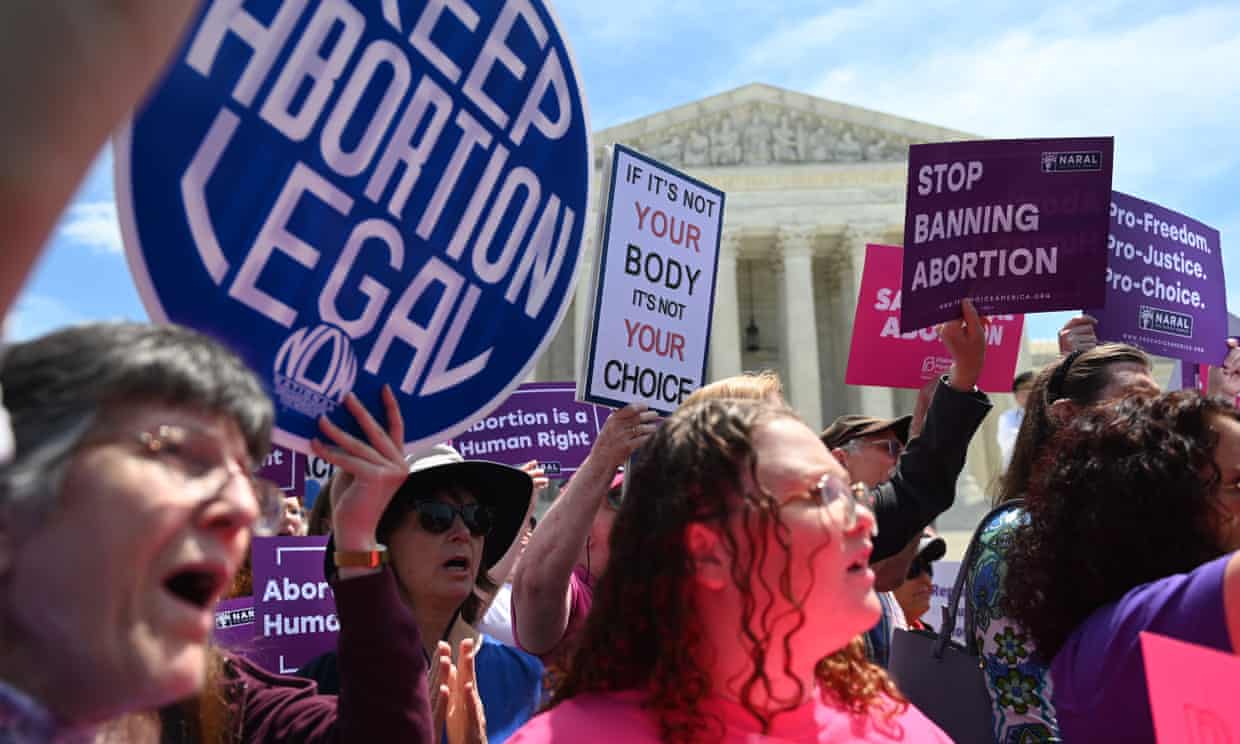
Abortion: justices permit Kentucky law that requires doctors to show pregnant women ultrasounds
by Jessica Glenza- Supreme court declines to take up court ruling that upheld law
- Doctors must describe ultrasound in detail to pregnant women
The supreme court left in place a Kentucky law requiring doctors to perform ultrasounds and show fetal images to patients before abortions on Monday.
The justices refused to review an appeals court ruling that upheld the law, and did not comment further. The move is seen as a victory for the anti-abortion movement in the US.
The development comes amid a wave of anti-abortion laws being passed by state legislatures across the US, focusing in conservative states. The laws are aimed at making access to abortion increasingly difficult and eventually forcing a supreme court showdown on the landmark Roe v Wade decision that legalized abortion in the US.
The Kentucky law requires doctors to “display and describe” a fetus in detail to a woman who wants an abortion. Most often, this requires women to undergo an invasive transvaginal ultrasound, because this is the only way to display this information early in pregnancy. Three states have such laws.
The American Civil Liberties Union (ACLU) challenged the law on behalf of Kentucky’s only abortion clinic. The ACLU argued ultrasound laws violate physicians’ speech rights under the first amendment.
The federal sixth circuit court of appeals in Cincinnati, Ohio, upheld the Kentucky law, but its sister court in Richmond, Virginia, struck down a similar measure in North Carolina. Texas also requires abortion providers to perform ultrasounds.
Doctors and patients have both described the Kentucky law as an invasion of the doctor-patient relationship. In the ACLU’s brief to the supreme court, a patient whose fetus was badly deformed described the forced ultrasound as “nothing short of torture”.
In another instance, a doctor performing an abortion for a couple whose child had a fetal anomaly said he was forced to perform an ultrasound on a woman who had already had multiple in the same day by different specialists.
The woman sobbed through the ultrasound, and the doctor described her husband as “visibly furious” and saying: “Why do they have to force her to go through this? She has gone through enough.”
When the case was in appeals court, it was heard by a three-judge panel which included a Trump appointee known to be an anonymous anti-gay and anti-abortion blogger before he received a lifetime appointment to the bench. Two judges upheld the law while a third, the only woman, wrote a scathing dissent.
The law was “a restriction on speech that has no basis in the practice of medicine”, wrote Judge Bernice Bouie Donald. “It should be subjected to heightened scrutiny and deemed unconstitutional, lest our constitution dissolve, and tyranny be erected on its ruins.”
Doctors’ speech also has been an issue in non-abortion cases. The federal appeals court in Atlanta struck down parts of a 2011 Florida law that sought to prohibit doctors from talking about gun safety with their patients. Under the law, doctors faced fines and the possible loss of their medical licenses for discussing guns with patients.
In Kentucky, doctors must describe the ultrasound in detail while the pregnant woman listens to the fetal heartbeat. Women can avert their eyes and cover their ears to avoid hearing the description or the fetal heartbeat. Doctors failing to comply face fines and can be referred to the state’s medical licensing board.
The law was passed in 2017 and was signed by the state’s anti-abortion governor, Republican Matt Bevin. He narrowly lost his re-election bid last month. But Republicans remain in control of the state legislature.